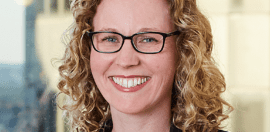Co-CEO model drives community-led change

26 October 2022 at 2:06 pm
SharingStories will have the benefit of two CEOs, working together to lead the organisation into its next phase.
SharingStories, a not-for-profit organisation that works with and for First Nations communities to protect, maintain and grow language, stories and cultural heritage will have co-CEOs to jointly lead the foundation in what it calls a ‘both-ways’ model.
The foundation is now led by Pitta Pitta woman and educational expert Sharon Williams, and experienced operations and program director Taz Miller.
Having two CEOs covering such a broad range of knowledge allows the organisation to do more, Miller said, working across the community in different capacities. Williams ensures the cultural integrity of the organisation, while Miller handles programs and operations. The two intersect and complement each other.
“Our skill sets are quite different, but we work extremely well together,” Williams told Pro Bono News.
The leadership model is different to Western styles of leadership which usually see the weight of the managerial role resting on a single person’s shoulders.
Miller said the approach also reflects what happens in community, honouring the practices of shared leadership often seen on Country.
Both-ways leadership is in keeping with the ethos that drives SharingStories.
“Everything in our organisation comes from this idea of both-ways practice,” she said.
Borrowing a quote from SharingStories chair Tim Goodwin, Miller said: “both-ways leadership is about Indigenous and non-Indigenous people working together to the best of our abilities and all of our skills for the betterment of Indigenous peoples and as a result, the entire nation,” she explained.
The both-ways philosophy has informed SharingStories from its early days, when founder Liz Thompson and Senior Nyikina Cultural Custodian Annie Nayina Milgin formed a lasting friendship.
Seeking a way to connect young people on Country with digital technology, they shared their skills: Annie had the cultural knowledge and connection to Country, and Liz had the digital and photography know-how.
Since then, the organisation has grown and developed a number of programs aimed at protecting Aboriginal and Torres Strait Islander culture, stories and language through digital technology and art.
Many of the organisation’s initiatives take the form of educational resources. The both-ways approach allows the cultural knowledge to be preserved while presenting it in a format that fits within a Western framework.
Representation matters
Williams said representation is important for Aboriginal kids and future leaders, especially in the education space.
“It’s a privilege to be sitting here in the co-CEO position with SharingStories. But I think for young people, it doesn’t happen naturally. Young people need to know that if they work hard, if they do something that they truly believe in and it comes from the heart, then anything is possible.
“I didn’t ever think I’d be sitting in this role. And I am so proud to be a role model for our young people. I am so proud to be able to have a voice in this space where I can be an advocate for people in schools and be an advocate for our people to be engaging in schools.”
The pair has assumed the leadership mantle at a time when the sector is in flux, coming out of what Miller said was almost a “daily change management situation” during COVID when many of SharingStories’ programs were unable to run.
The need to pivot and the backlog of work made supporting the community harder than before.
Now, as the world adapts to living with COVID and as the financial crisis escalates, Miller said the funding situation was a challenge.
But those challenges have made the organisation and the leadership team stronger, and Miller said things are now “less daunting”. They’ve found new revenue streams, including working with corporates, and they’ve begun operating the Jajoo Warrngara: The Culture Classroom, a new digital educational platform ten years in the making.
Culturally safe classroom storytelling
Jajoo Warrngara, meaning to gather around and listen to elders in the Nyikina language, is an “accumulation” of storytelling, Williams explained.
“[It is] wrapped up in this amazing culturally safe bubble for educators to access resources and share with their students in authentic and meaningful ways that are not only safe for teachers to share, but also for students in the classroom,” she added.
“Being in education for 27 years. I’m very aware of the fact that there are lots of teachers out there who are not comfortable with sharing [First Nations content]. It is a mandated part of the curriculum, so teachers are expected to embed First Nations perspectives, but when they are not comfortable with it, they will either avoid it or they will teach and make a mistake and get in trouble and not go back and do it again,” she said.
The resources in Jajoo Warrngara have been co-designed with and approved by First Nations communities. The resources are guided by cultural protocols developed by senior custodians that explain how the content should be used in the classroom and how to keep things culturally appropriate. Each lesson also encourages teachers to connect with local custodians to embed that local perspective into the classroom.
As a social enterprise, 50 per cent of the revenue from Jajoo Warrngara goes back into the communities that contributed to it. The other half goes back to SharingStories, which, as a not for profit, uses the funds to continue its community work.
Jajoo Warrngara also feeds into the direction that the two co-CEOs hope to take the organisation in future.
“From an educational perspective, I want to be able to broaden our horizon and make sure that what we are offering is inclusive, as inclusive as possible of the diversity of our First Nations cultures across Australia,” Williams said.
“I want to offer what we do to as many people as possible, because I know that there are so many people out there, so many First Nations people out there that are really excited by the prospect of what we do and want to be part of it.
“I can genuinely say there is nothing like what we do from an authentic, place based, community driven, community owned content. We are very unique in our space.”
For her part, Miller wants to make sure that SharingStories continues to work deeply with communities, in education and creative arts.
“What is the Sharing Stories impact other than an amplification of communities’ impact? We want to keep making sure that we can do that,” she said.







